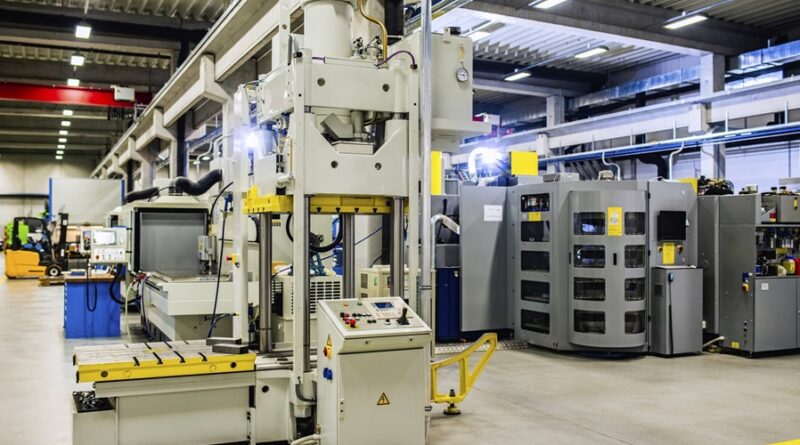How Special Purpose Machinery Boosts Efficiency
In today’s fast-paced manufacturing world, efficiency is everything. Companies need to produce high-quality products faster, more accurately, and at lower costs to stay competitive. Traditional manufacturing methods often struggle with consistency, speed, and adaptability. That’s where special purpose machinery (SPM) comes in.
Designed to perform specific tasks with precision, special purpose machinery helps businesses automate processes, reduce human error, and improve productivity. Whether it’s assembling parts, packaging products, or conducting quality checks, SPM is transforming how manufacturers operate. Investing in special purpose machinery ensures businesses streamline production, reduce costs, and maintain consistency without compromising quality.
Let’s explore how this technology can significantly boost efficiency across industries.
1. What Is Special Purpose Machinery?
Unlike general-purpose machines, special purpose machinery is custom-built to handle a specific task or production process. These machines are designed to:
- Perform repetitive tasks with high precision.
- Operate at faster speeds than manual processes.
- Reduce defects and ensure consistent quality.
From automotive assembly lines to medical device manufacturing, SPM plays a crucial role in enhancing efficiency across industries.
2. Eliminating Manual Labor Bottlenecks
One of the biggest inefficiencies in traditional manufacturing is human dependency. Manual labor introduces:
- Inconsistencies in product quality.
- Slower production speeds compared to automation.
- Higher labor costs and increased training requirements.
By automating repetitive tasks with SPM, companies can free up workers for more complex, value-driven roles while reducing production delays.
3. Enhancing Speed and Throughput
Time is money in manufacturing. Custom-built machinery allows businesses to:
- Increase production speed by handling tasks continuously.
- Reduce downtime caused by manual errors.
- Improve material handling to optimize workflow.
With the right SPM in place, manufacturers can produce higher volumes in less time, significantly improving overall efficiency.
4. Improving Precision and Quality Control
Precision is key in industries like automotive, aerospace, and electronics. A small deviation in product dimensions can lead to defects or failures. Special purpose machinery ensures:
- High repeatability, eliminating errors from manual handling.
- Accurate measurements, improving product consistency.
- Automated quality checks, reducing defective units.
By integrating vision systems and AI-powered inspection tools, SPM enhances real-time quality control and ensures compliance with industry standards.
5. Reducing Waste and Material Costs
Manufacturing waste leads to higher costs and environmental concerns. SPM helps by:
- Minimizing material wastage through precise cutting and assembly.
- Reducing rework caused by human errors.
- Optimizing raw material usage to improve cost efficiency.
With better resource management, businesses can reduce expenses while maintaining sustainability.
6. Increasing Workplace Safety
Workplace injuries are a serious concern in industrial settings. By automating hazardous tasks, SPM:
- Reduces direct human contact with dangerous machinery.
- Minimizes accidents related to fatigue or misjudgment.
- Ensures compliance with workplace safety regulations.
Safer work environments lead to higher employee morale and fewer compensation claims.
7. Adapting to High-Mix, Low-Volume Production
Modern manufacturing often requires flexibility. Unlike traditional mass production, companies now focus on high-mix, low-volume production to meet customer demands. Special purpose machinery offers:
- Customizable configurations for different product variants.
- Quick changeovers, reducing downtime between production runs.
- Scalability to adapt to evolving market needs.
This adaptability ensures businesses stay competitive in a fast-changing landscape.
8. Enhancing Energy Efficiency
Energy consumption is a major cost factor in manufacturing. SPM helps by:
- Optimizing power usage through energy-efficient motors.
- Reducing idle time, ensuring machines only operate when needed.
- Integrating smart sensors to monitor and control energy consumption.
Lower energy usage not only cuts costs but also aligns with sustainable manufacturing goals.
9. Customizing Machinery for Industry-Specific Needs
Every industry has unique manufacturing challenges. Special purpose machinery can be tailored to specific applications, such as:
- Automotive – Robotic welding and component assembly.
- Pharmaceuticals – Precision filling and packaging systems.
- Electronics – High-speed circuit board assembly.
- Food & Beverage – Automated sorting, cutting, and packing solutions.
By designing industry-specific solutions, manufacturers achieve higher efficiency and better product quality.
10. Long-Term Cost Savings and ROI
Although investing in special purpose machinery requires an upfront cost, the long-term savings outweigh the initial investment. Benefits include:
- Lower labor costs due to automation.
- Higher production output, increasing revenue.
- Reduced maintenance costs with well-engineered systems.
With higher efficiency and reduced operational costs, businesses see a strong return on investment (ROI) over time.
Final Thoughts
Special purpose machinery is revolutionizing modern manufacturing by enhancing speed, accuracy, and cost efficiency. By eliminating manual bottlenecks, improving precision, and optimizing resources, businesses can stay ahead of the competition.
If you’re looking to boost efficiency and streamline production, investing in tailored special purpose machinery is a game-changer. It not only enhances productivity and quality but also future-proofs your operations in a rapidly evolving market.

